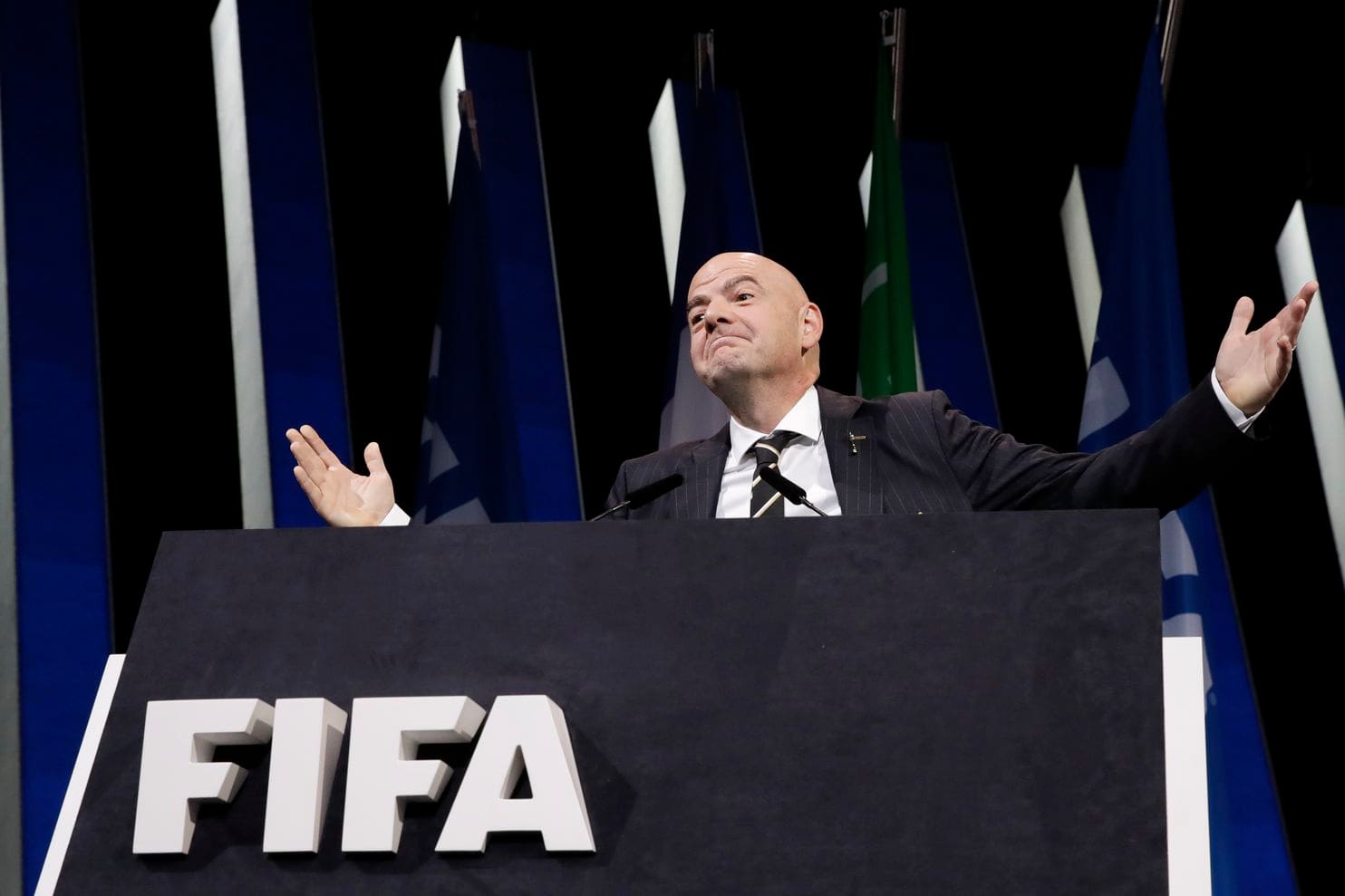March 18 – One early victim of the coronavirus crisis has been FIFA President Gianni Infantino’s authority.
The enforced rejigging of sporting schedules provided arch-rival UEFA with the perfect opportunity to deal a heavy blow to its former employee’s gleaming new-look Club World Cup, while wrapping itself in a cloak of altruism (for allowing more time for European clubs to complete their seasons) and firm leadership.
The European body duly wielded the sword on Tuesday, postponing Euro 2020 by a year until 11 June-11 July 2021 – a head-on clash with the 17 June-4 July dates first suggested for Infantino’s “historic” inaugural 24-team Club World Cup.
South America’s CONMEBOL, which increasingly seems to be singing from the same song-sheet as its European counterpart in recent months, duly announced a similar move, shifting this year’s Copa América until 2021.
“It was important,” proclaimed UEFA President Aleksander Čeferin, rising to his task, “that…UEFA led the process and made the biggest sacrifice”.
He seems unaccountably to have forgotten to mention that the sacrifice in question is the new Club World Cup.
The FIFA Presidential statement that followed appeared to me freighted with wounded pride and frustration.
FIFA had, Infantino said, received the “requests” from CONMEBOL and UEFA to postpone their respective competitions to “a slot… currently reserved for the new FIFA Club World Cup”.
It was, he went on, important to remember that the “main purpose” of FIFA’s competitions was to “ensure both global football development and worldwide solidarity programmes”. Nevertheless, he would suggest accepting the postponements and deciding later “when to reschedule the new FIFA Club World Cup, later in 2021, in 2022 or in 2023”.
The truth is that UEFA’s opportunistic outbreak of altruism is not the only shadow that Covid-19 has thrown over Infantino’s strategically understandable attempts to secure for FIFA an increased stake in the loads-a-money European elite club game.
It was reported last month, though frankly it might as well have been in the paleolithic era given what has since transpired, that FIFA had turned to a US-based merchant bank called Raine Group to source the money that would be necessary to seal participation of Europe’s top clubs in the reformatted tournament.
The massacre that has now befallen global securities markets will have turned the world of high finance on its head. It is impossible to say when conditions will be stable enough for players to reassess and begin to decide where to place new bets in an economy more comprehensively shaken-down than at any time since the Second World War. In such circumstances, Infantino may be kept waiting even longer than he imagines before his turbocharged Club World Cup dream can become reality.
Back in the unlamented days of FIFA’s ancien régime, Sepp Blatter, that wily political conjuror, was kept hemmed in by football’s continental confederation bosses and the power they wielded through the old Executive Committee to a far greater extent than is generally appreciated. They never failed to re-elect him, sure, but they tended to draw the line should he endeavour to cut too keenly across their vested interests.
By apparently making common cause on certain issues, Čeferin and his counterpart at CONMEBOL Alejandro Domínguez could be said to be demonstrating that football’s essential power structures have not changed as much as some may have supposed.
It will be fascinating to see if this, for the moment, fruitful collaboration can survive the trials and tribulations of a 2030 World Cup bidding contest that both men look likely to want to win. Alternatively, will Infantino be able to exploit this high-stakes battle to mount a comeback – perhaps by opening the field to Asia and, hence, his friends in China?
For now the contrast with the heady days – just two years ago – of that putative $25 billion buyout bid for the Club World Cup and a new Nations League could scarcely be more striking – or illuminating.
David Owen worked for 20 years for the Financial Times in the United States, Canada, France and the UK. He ended his FT career as sports editor after the 2006 World Cup and is now freelancing, including covering the 2008 Beijing Olympics, the 2010 World Cup and London 2012. Owen’s Twitter feed can be accessed at www.twitter.com/dodo938.

